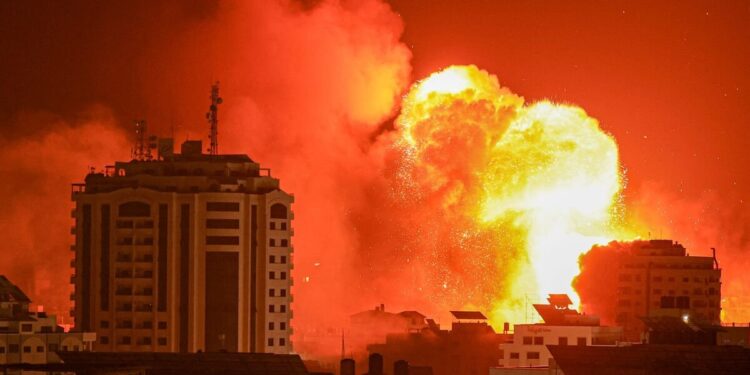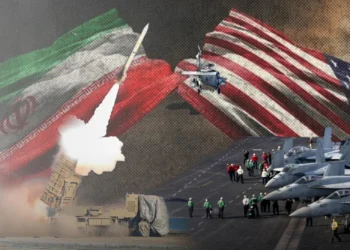Gaza/Jerusalem, July 18, 2025 – The Israel-Hamas conflict, which reignited with Hamas’s October 7, 2023, attack on Israel, continues to devastate Gaza and strain international diplomacy. Despite a brief ceasefire in January 2025, hostilities resumed in March, with recent developments underscoring the deepening humanitarian crisis and faltering negotiations. Both Israeli and Hamas officials have issued statements reflecting entrenched positions, while global actors express growing alarm over the war’s toll.
Current Developments
Israeli military operations in Gaza have intensified, with airstrikes and ground offensives targeting Hamas infrastructure. On July 16, 2025, at least 20 Palestinians were killed in an incident at an aid distribution site run by the U.S.-backed Gaza Humanitarian Foundation in Khan Younis, with conflicting reports attributing the deaths to a crowd surge instigated by armed agitators or Israeli military action. On July 13, Israeli airstrikes killed at least 16 people, including six children, at a water distribution point in Gaza City, according to Palestinian health officials. The Israeli military acknowledged firing warning shots at Palestinians approaching its forces, but the Gaza Humanitarian Foundation denied violence at its sites.
The war has caused unprecedented destruction, with over 54,000 Palestinian deaths reported by Gaza’s health ministry as of June 2025, including 14,500 children, according to UNICEF. Israel’s tightened blockade has exacerbated a hunger crisis, with the UN warning of imminent famine. Hamas continues to hold approximately 50 hostages, of whom 20 are believed to be alive, following the October 2023 attack that killed 1,200 Israelis and abducted 251.
Ceasefire talks, mediated by the U.S. and Qatar, have stalled. A U.S.-backed proposal for a 60-day truce, including the release of 28 hostages and over 1,000 Palestinian prisoners, was accepted by Israel but met with resistance from Hamas, which demands a full Israeli withdrawal from Gaza. On July 16, a source close to Hamas’s negotiating team accused Israel of spreading misinformation and stalling talks by refusing to provide new maps clarifying withdrawal plans. Israel, meanwhile, claims Hamas is obstructing negotiations.
Statements from Israeli Government
Israeli Prime Minister Benjamin Netanyahu has maintained a hardline stance, emphasizing the destruction of Hamas and the return of hostages. In a recent statement, he rejected International Criminal Court (ICC) arrest warrants issued against him and Defense Minister Yoav Gallant for alleged war crimes, calling them “antisemitic” and comparing them to the Dreyfus affair. Netanyahu vowed to continue the offensive, stating, “We are neither complacent nor overconfident. We have no intention of taking our foot off the gas.”
Defense Minister Israel Katz announced plans to relocate 600,000 Gazans to a “humanitarian city” in Rafah’s ruins, contradicting military denials of population-transfer objectives. Finance Minister Bezalel Smotrich has openly called for Gaza’s “entire destruction” and the displacement of its residents to third countries, drawing international condemnation. Israel’s government insists its actions target Hamas’s military capabilities, not civilians, and accuses the group of diverting aid.
Statements from Hamas
Hamas has accused Israel of waging a “starvation war” and committing genocide, claims supported by an Amnesty International report concluding that Israel’s actions meet the threshold for genocide. Senior Hamas official Bassem Naim stated, “There is no point in any negotiations while [Israel] continues its starvation war against our people,” rejecting talks unless the blockade is lifted. Hamas justified its October 2023 attack as a response to decades of Israeli occupation and blockade, with Gaza leader Khalil al-Hayya arguing it “raised an alarm” for the Palestinian cause. The group has signaled openness to an interim Palestinian state but refuses to disarm or step down, as demanded by an Arab League reconstruction plan.
International Response
The UN, European governments, and humanitarian organizations have intensified criticism of Israel’s conduct. UN Secretary-General António Guterres warned that expanded Israeli operations would “inevitably lead to countless more civilians killed.” France’s Foreign Minister Jean-Noël Barrot called Israel’s plans “unacceptable” and in violation of humanitarian law. The U.S., while continuing to support Israel, has expressed frustration with Hamas’s refusal to accept ceasefire terms and announced plans to supply food aid to Gaza. However, tensions between the U.S. and Europe are growing, with European leaders supporting ICC findings and urging accountability.
Humanitarian Crisis
Gaza remains “uninhabitable,” according to the U.S. government, with entire cities leveled, hospitals destroyed, and undetonated explosives littering the territory. Aid agencies report widespread looting and a breakdown of law and order, complicating distribution efforts. The closure of al-Awda hospital and an attack on Gaza’s only Catholic church, killing three, have further strained resources.
Outlook
With no breakthrough in ceasefire talks, the conflict shows no signs of abating. Israel’s proposed aid distribution plan, involving three centers in Rafah under military control, has been rejected by the UN as a “deliberate attempt to weaponize aid.” As both sides dig in, the humanitarian toll continues to mount, with international pressure growing for a resolution to avert further catastrophe.




































